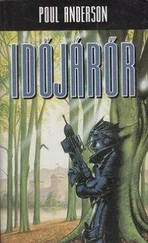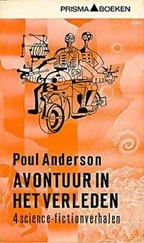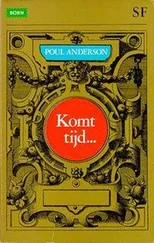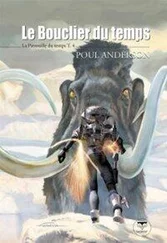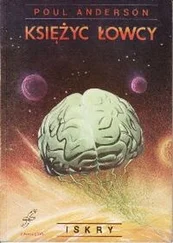Poul Anderson - How to Be Ethnic in One Easy Lesson
Здесь есть возможность читать онлайн «Poul Anderson - How to Be Ethnic in One Easy Lesson» весь текст электронной книги совершенно бесплатно (целиком полную версию без сокращений). В некоторых случаях можно слушать аудио, скачать через торрент в формате fb2 и присутствует краткое содержание. Жанр: Фантастика и фэнтези, на английском языке. Описание произведения, (предисловие) а так же отзывы посетителей доступны на портале библиотеки ЛибКат.
- Название:How to Be Ethnic in One Easy Lesson
- Автор:
- Жанр:
- Год:неизвестен
- ISBN:нет данных
- Рейтинг книги:5 / 5. Голосов: 1
-
Избранное:Добавить в избранное
- Отзывы:
-
Ваша оценка:
- 100
- 1
- 2
- 3
- 4
- 5
How to Be Ethnic in One Easy Lesson: краткое содержание, описание и аннотация
Предлагаем к чтению аннотацию, описание, краткое содержание или предисловие (зависит от того, что написал сам автор книги «How to Be Ethnic in One Easy Lesson»). Если вы не нашли необходимую информацию о книге — напишите в комментариях, мы постараемся отыскать её.
How to Be Ethnic in One Easy Lesson — читать онлайн бесплатно полную книгу (весь текст) целиком
Ниже представлен текст книги, разбитый по страницам. Система сохранения места последней прочитанной страницы, позволяет с удобством читать онлайн бесплатно книгу «How to Be Ethnic in One Easy Lesson», без необходимости каждый раз заново искать на чём Вы остановились. Поставьте закладку, и сможете в любой момент перейти на страницу, на которой закончили чтение.
Интервал:
Закладка:
“My people?” The room wobbled around me. “I mean…well, sure, my name’s Ching and I’m proud of it. And maybe the, uh, the chromosome recombinations do make me look like those ancestors. But…half a thousand years, sir! If I haven’t got blood in me of every breed of human being that ever lived, why, then I’m a statistical monstrosity!”
“True. However, the accident which makes you a throwback to your Mongoloid forebears is helpful. Few of my students are identifiably anything. I try to find roles for them, on the basis of surnames, but it isn’t easy.”
Yeh , I thought bitterly. By your reasoning, everybody named Marcantonio should dress in a toga for the occasion, and everybody named Smith should paint himself blue .
“There is a local ad hoc committee on Chinese-American activities,” Snyder went on. “I suggest you contact them and ask for ideas and information. What can you present on behalf of our educational system? And then, of course, there’s Library Central. It can supply more historical material than you could read in a lifetime. Do you good to learn a few subjects besides math, physics, xenology—” His grimace passed by. I gave him marks for sincerity: “Perhaps you can devise something, a float or the like, something which will call on your engineering ingenuity and knowledge. That would please them too, when you apply at the Academy.”
Sure , I thought, if it hasn’t eaten so much of my time that I flunk these prelims .
“Remember,” Snyder said, “the Festival opens in barely three months. I’ll expect progress reports from you. Feel free to call on me for help or advice at any time. That’s what I’m here for, you know: to guide you in developing your whole self.”
More of the same followed. I haven’t the stomach to record it.
I called Betty Riefenstahl, but just to find out if I could come see her. Though holovids are fine for image and sound, you can’t hold hands with one or catch a whiff of perfume and girl.
Her phone told me she wasn’t available till evening. That gave me ample chance to gnaw my nerves raw. I couldn’t flat-out refuse Snyder’s pet notion. The right was mine, of course, and he wouldn’t consciously hold a grudge; but neither would he speak as well as he might of my energy and team spirit. On the other hand, what did I know about Chinese civilization? I’d seen the standard sights; I’d read a classic or two in literature courses; and that was that. What persons I’d met over there were as modern-oriented as myself. (No pun, I hope!) And as for Chinese-Americans, vaguely remembering that San Francisco had once had special ethnic sections, I did ask Library Central. It screened a fleet of stuff about a district known as Chinatown. Probably contemporaries found that area picturesque. (Oh, treetop highways under the golden-red sun of Cynthia! Four-armed drummers who sound the mating call of Gorzun’s twin moons! Wild wings above Ythn!) The inhabitants had celebrated a Lunar New Year with fireworks and a parade. I couldn’t make out details—the photographs had been time-blurred when their information was receded—and was too disheartened to plow through the accompanying text.
For me, dinner was a refueling stop. I mumbled something to my parents, who mean well but can’t understand why I must leave the nice safe Commonwealth, and flitted off to the Riefenstahl place. The trip calmed me a little. I was reminded that, to outworlders like Adzel, the miracle was here. Light glimmered in a million earthbound stars across the hills, far out over the great sheen of Bay and ocean; often it fountained upward in a many-armed tower, often gave way to the sweet darkness of a park or ecocenter. A murmur of machines beat endlessly through cool, slightly foggy air. Traffic Control passed me so near a bus that I looked in its canopy and saw the passengers were from the whole globe and beyond—a dandified Lunarian, a stocky blueskin of Alfzar, a spacehand identified by his Brotherhood badge, a journeyman merchant of the Polesotechnic League who didn’t bother with any identification except the skin weathered beneath strange suns, the go-to-hell independence in his face, which turned me sick with envy.
The Riefenstahls’ apartment overlooked the Golden Gate. I saw lights twinkle and flare, heard distant clangor and hissing, where crews worked around the clock to replicate an ancient bridge. Betty met me at the door. She’s slim and blonde and usually cheerful. Tonight she looked so tired and troubled that I myself paid scant attention to the briefness of her tunic.
“Sh!” she cautioned. “Let’s don’t say hello to Dad right now. He’s in his study, and it’s very brown.” I knew that her mother was away from home, helping develop the tape of a modern musical composition. Her father conducted the San Francisco Opera.
She led me to the living room, sat me down, and punched for coffee. A full-wall transparency framed her where she continued standing, in city glitter and shimmer, a sickle moon with a couple of pinpoint cities visible on its dark side, a few of the brightest stars. “I’m glad you came, Jimmy,” she said. “I need a shoulder to cry on.”
“Like me,” I answered. “You first, however.”
“Well, it’s Dad. He’s ghastly worried. This stupid Festival—”
“Huh?” I searched my mind and found nothing except the obvious. “Won’t he be putting on a, uh, Terrestrial piece?”
“He’s expected to. He’s been researching till every hour of the mornings, poor dear. I’ve been helping him go through playbacks—hundreds and hundreds of years’ worth—and prepare synopses and excerpts to show the directors. We only finished yesterday, and I had to catch up on sleep. That’s why I couldn’t let you come earlier.”
“But what’s the problem?” I asked. “Okay, you’ve been forced to scan those tapes. But once you’ve picked your show, you just project it, don’t you? At most, you may need to update the language. And you’ve got your mother to handle reprogramming.”
Betty sighed. “It’s not that simple. You see, they—his board of directors, plus the officials in charge of San Francisco’s participation—they insist on a live performance.”
Partly I knew what she was talking about, partly she explained further. Freeman Riefenstahl had pioneered the revival of in—the-flesh opera. Yes, he said, we have holographic records of the greatest artists; yes, we can use computers to generate original works and productions which no mortal being could possibly match. Yet neither approach will bring forth new artists with new concepts of a part, nor do they give individual brains a chance to create—and, when a million fresh ideas are flowing in to us from the galaxy, natural-born genius must create or else revolt.
“Let us by all means use technical tricks where they are indicated, as for special effects,” Freeman Riefenstahl said. “But let us never forget that music is only alive in a living performer.”
While I don’t claim to be very esthetic, I tuned in his shows whenever I could. They did have an excitement which no tape and no calculated stimulus interplay—no matter how excellent—can duplicate.
“His case is like yours,” Betty told me near the start of our acquaintance. “We could send robots to space. Nevertheless men go, at whatever risk.” That was when I stopped thinking of her as merely pretty.
Tonight, her voice gone bleak, she said: “Dad succeeded too well. He’s been doing contemporary things, you know, letting the archives handle the archaic. Now they insist he won’t be showing sufficient respect, as a representative of the Integrate, for the Human Ethos, unless he puts on a historic item, live, as the Opera Company’s share of the Festival.”
Читать дальшеИнтервал:
Закладка:
Похожие книги на «How to Be Ethnic in One Easy Lesson»
Представляем Вашему вниманию похожие книги на «How to Be Ethnic in One Easy Lesson» списком для выбора. Мы отобрали схожую по названию и смыслу литературу в надежде предоставить читателям больше вариантов отыскать новые, интересные, ещё непрочитанные произведения.
Обсуждение, отзывы о книге «How to Be Ethnic in One Easy Lesson» и просто собственные мнения читателей. Оставьте ваши комментарии, напишите, что Вы думаете о произведении, его смысле или главных героях. Укажите что конкретно понравилось, а что нет, и почему Вы так считаете.



